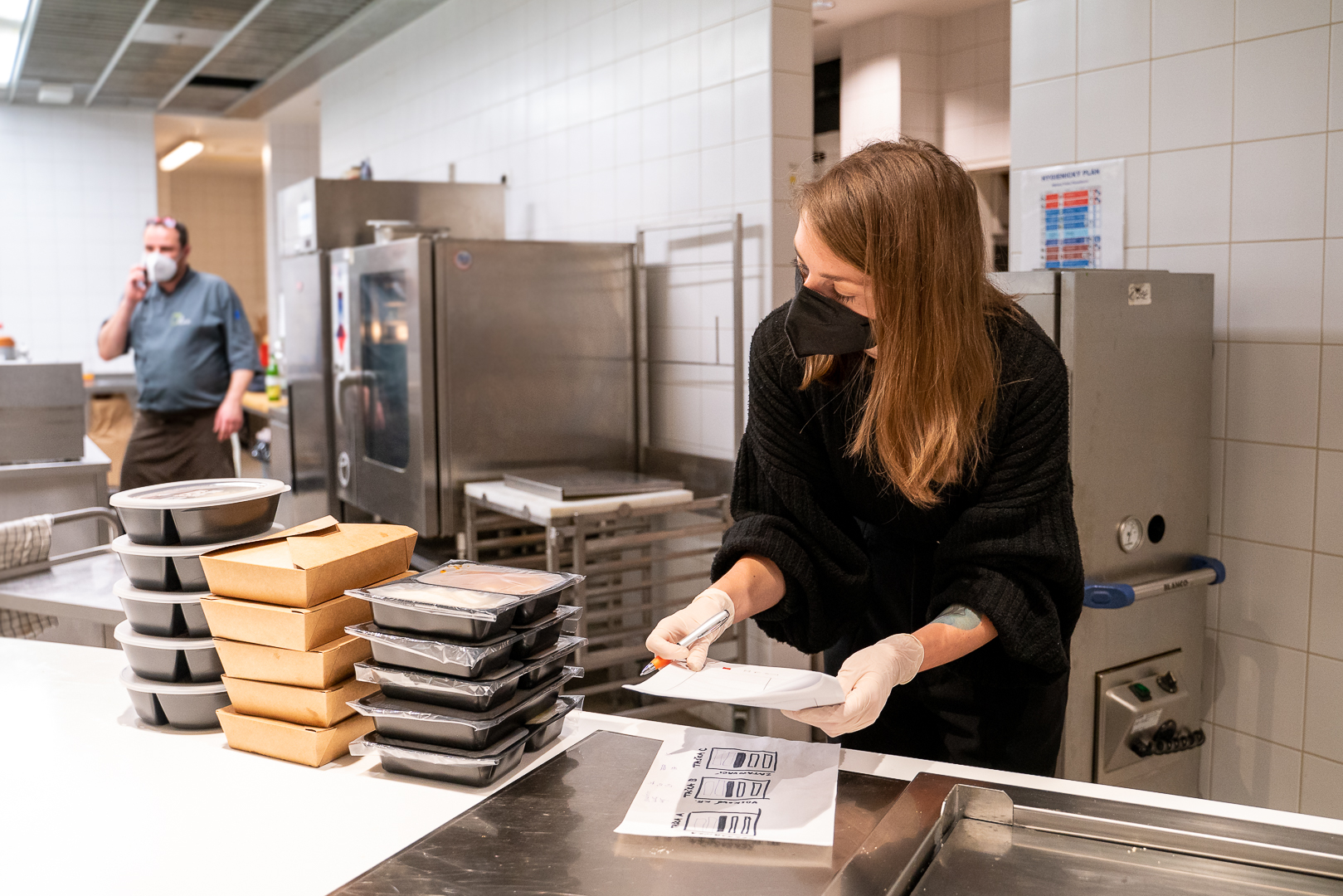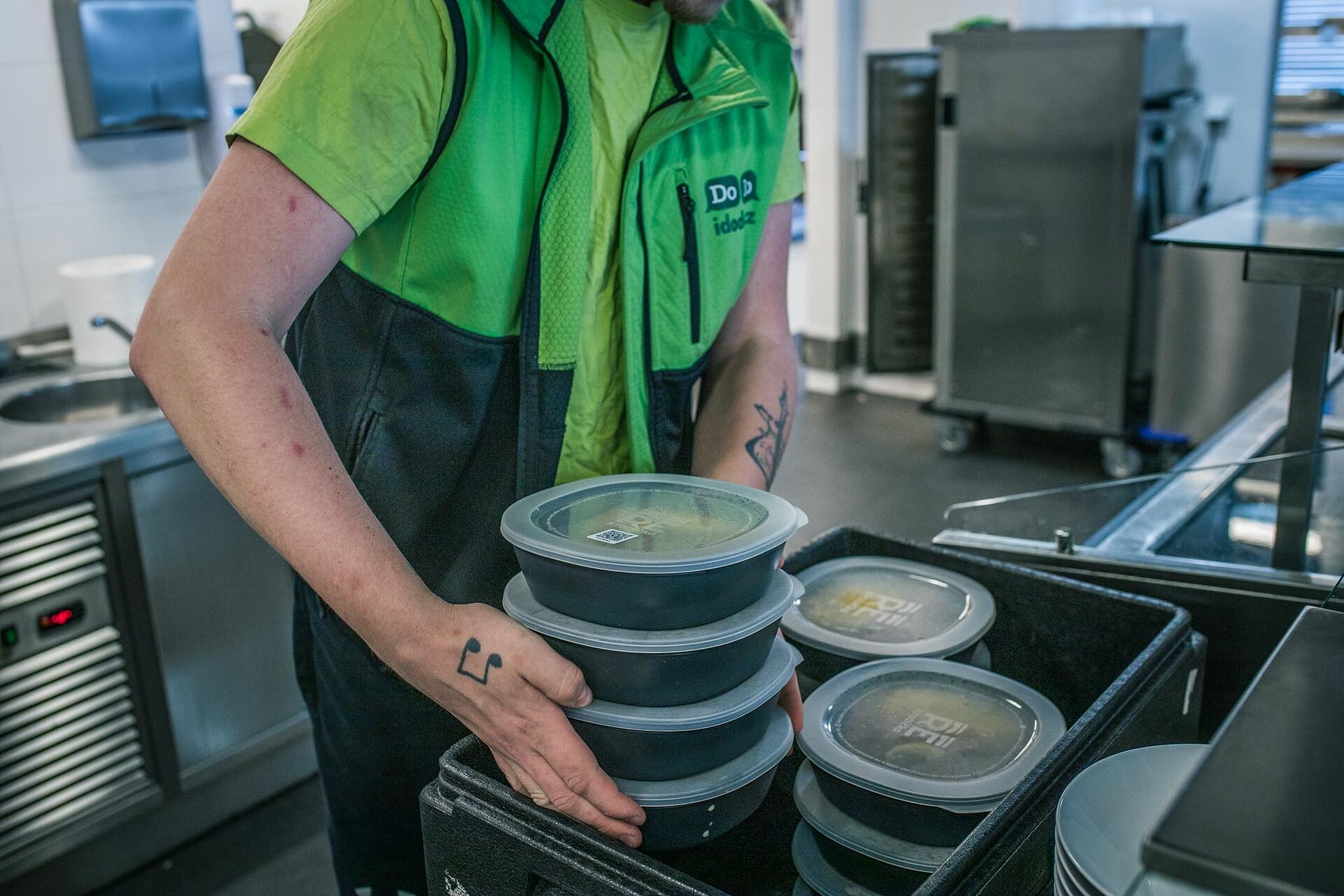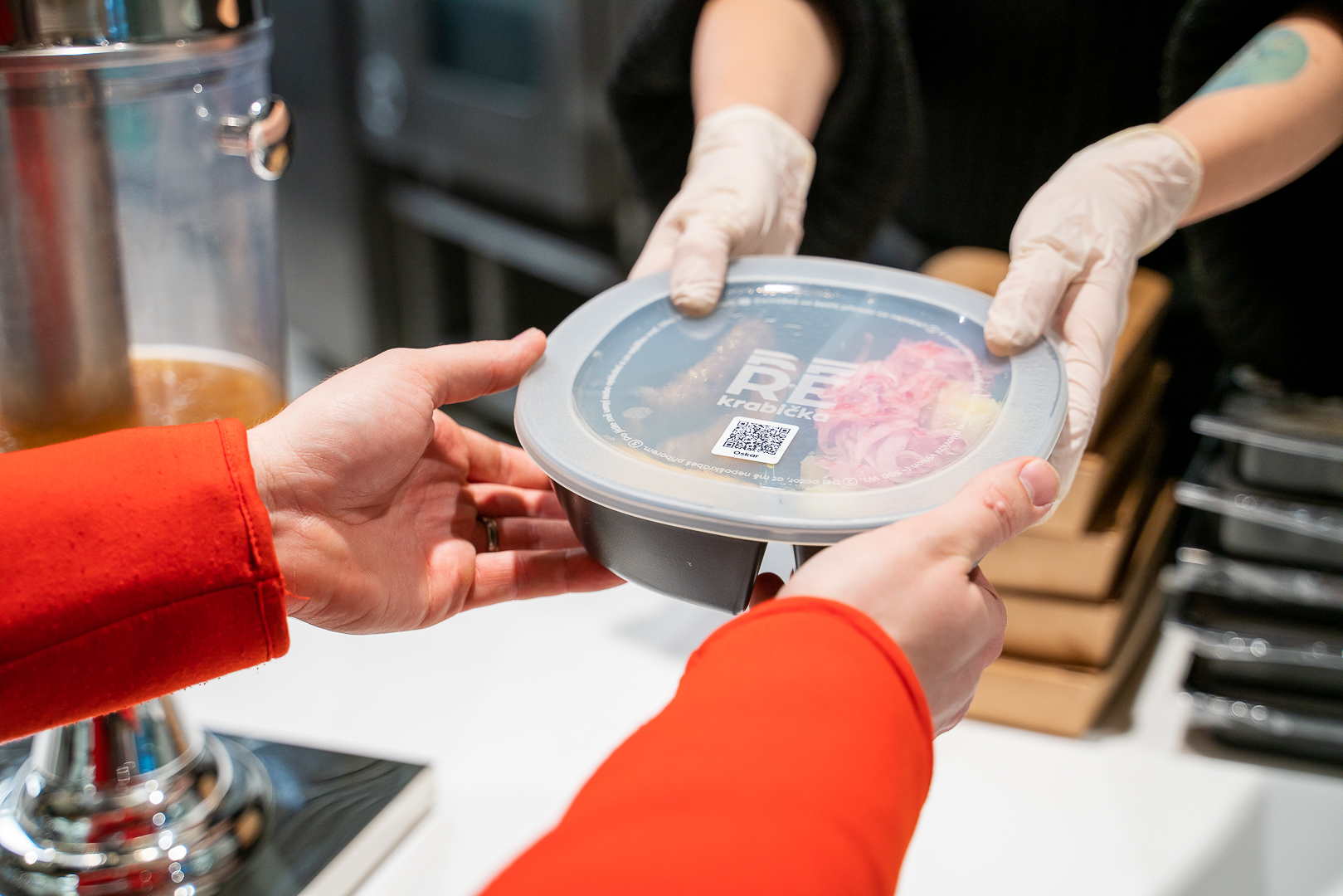Better to donate than throw away
Keywords: Food waste
Subject and objectives of the project
The project aimed to curb food waste in the Czech Republic (CZ) by passing on ready meals from restaurants and large canteens to the so-called needy in order to improve their quality of life at the same time. The project focused on the development and testing of a web application that connects catering businesses and charitable organizations and tests its implementation. Another focus was on networking catering businesses / large canteens, logistics partners (food banks / courier services) and consumers (NGOs / people in need). In concrete terms, new partnerships were realized through close participatory cooperation with 7 restaurants, which took part in the development of the web application and in testing two models for the distribution of ready meals. Two pilot models of donations of ready meals were tested in two Prague districts. On 01.07.2023, Regulation No. 121/2023 Coll. on the requirements for food donations comes into force and makes it possible to chill and freeze the food during the entire release period.
The following steps were taken:
- Problem definition and network development
The first step was to establish an exchange with representatives from state agricultural and food regulatory authorities, microbiological laboratories and catering businesses. This was followed by two consultations with lawyers and two meetings with government representatives. - Pilot project for the distribution of ready meals
To develop the pilot models, six interviews were conducted with representatives of charitable organizations and five interviews with representatives of catering businesses. Two pilot models for donating ready meals were carried out: Model 1 focused on donating hot meals directly to local charities. Model 2 focused on the dispensing of cooled dishes. As part of this model, dishes were cooled in a restaurant and at the Prague food bank. As part of the microbiological tests, samples were taken 72 hours after refrigeration and analyzed in the laboratory. It was established that cooling is feasible and safe in practice. In both cases, it was tested when it makes the most sense to transport the dishes, which disposable or reusable containers are best suited for transportation and how the route should be optimally planned. Both pilot models were evaluated internally and the feasibility of individual long-term solutions was assessed. Based on the findings, a guide entitled “How to donate ready meals” with recommendations for restaurants, charities and food banks was published and sent to relevant stakeholders. - Development of a web application for the distribution of ready meals Research was carried out on web applications from other countries. A web application was then developed that appeals to users through its name, logo and design. The functionality and user-friendliness were tested. Employees of restaurants and non-profit organizations were trained in the use of the web application. To promote the launch of the final web application, a crowdfunding campaign was carried out in collaboration with 6 influencers, including 4 of the largest Czech gastro-influencers. Seven catering companies took part in the dissemination of the campaign. By the end of 2022, around EUR 9,300 had been collected from 305 donors.
- Public Relations
A communication campaign accompanied the project in social and traditional media. Over the course of the project, four newsletters were sent to 9,200 contacts, 20 posts were published on social media with a reach of at least 100,000 users and four press releases were issued. In addition, regular information about the project was posted on the websites of the Tafel Academy and Zachraň jídlo. A new website (zachranobed.cz) has been launched, which is aimed specifically at catering companies and charitable organizations. Photo and video material was produced for the project.
Innovation and exemplary nature of the project
Zachraň jídlo is an organization that has been dealing with food waste since 2013. It is one of the few initiatives dealing with this topic in the Czech Republic and is the only organization pursuing systemic change in this area.
The most innovative part of the project was the development and testing of models for the distribution of ready meals, taking into account the needs and approaches of catering businesses and recipients, as well as the requirements for the packaging and transportation of food. The web application then reflects these requirements. An innovative approach in the form of crowdfunding was also used to acquire additional financing.
Thanks in part to the activities of Zachraň jídlo, the topic of sustainable food management has become a mainstream idea that is of interest to the media and the public. The association opens up new topics and looks for systemic solutions in areas that are neglected by others because they are often still unexplored. Creative campaigns and events succeed in opening up a social discussion in which private companies, state institutions and NGOs are equally involved.
The project results may be of interest to other larger cities.
Special aspects of the project
The Zachraň jídlo association is in contact with similar organizations abroad (including Feedback Global from the UK, FSE Network from Belgium, Krommkomer from the Netherlands and Foodhsharing.de from Germany) and is a member of various online and offline platforms where experiences, knowledge and ideas are exchanged. This network effectively communicates the results of the project’s activities. If other organizations are interested in the topic, the knowledge gained will be made available.



Funding topic 2: Sustainable nutrition and sustainable food handling
Project implementation:
- Bildungsakademie der Tafel Deutschland gGmbH, Berlin
- Association Zachraň jídlo, Prague, Czech Republic
Places of work: Germany and the Czech Republic
Funding period: September 2021 to June 2023
Project costs: Total volume: 230,778 euros, funding from DBU: 115,389 euros
DBU-AZ: 37522
Status: 14.05.2024
Cover picture: © Štěpán Lohr